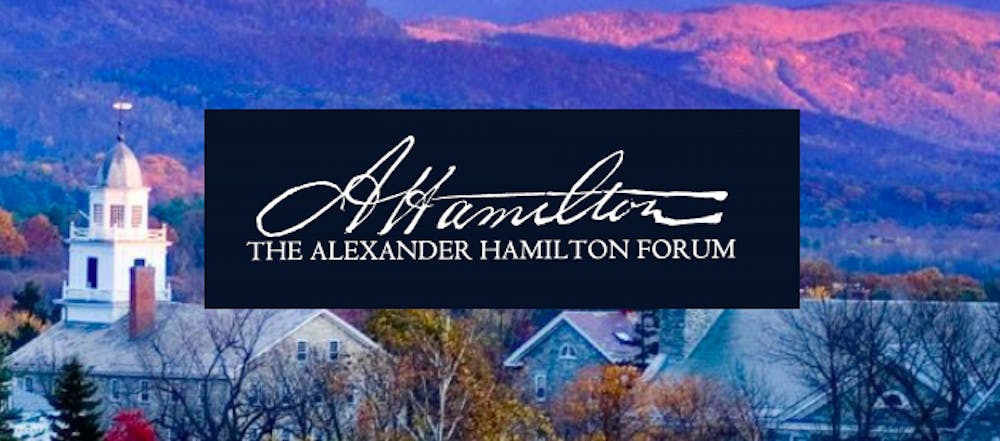The controversy last month over the cancellation of a lecture by Ryszard Legutko threw the organization that invited him, the Alexander Hamilton Forum, into the national spotlight.
Student activists and faculty members criticized the Political Science department and Rohatyn Center for Global Affairs for sponsoring the event, including at a panel discussion held by both entities the day before the lecture was scheduled to take place. Neither the Rohatyn Center or Political Science department provided any monetary support of the event. At the panel, attendees asked who funded Legutko’s lecture, and the Hamilton Forum in general.
In an email to The Campus, forum director and Assistant Political Science Professor Keegan Callanan identified the three sources that fund the Hamilton Forum: The Institute for Humane Studies (IHS), J.P. Morgan Charitable Giving Fund and The Jack Miller Center.
Callanan said the forum takes no direction from its donors when it comes to selected topics, invited speakers or any aspect of the forum’s programming.
IHS is a libertarian non-profit organization affiliated with George Mason University. Its website identifies its mission to “ensure higher education becomes a place where classical liberal ideas are regularly taught, discussed, challenged, and developed, and where free speech, intellectual diversity, and open inquiry flourish.”
The Hamilton Forum received through IHS’s Grant for Free Speech and Open Inquiry program, which is supported by the Clifford S. Asness Foundation. The IHS website says the grant is “designed to support faculty who are interested in fostering free speech and civil discourse in academia as they undertake research, plan campus events, or develop student curricula exploring the past, present, and future of free speech.”
Grants range from $5,000 to $25,000 and relevant subject areas include the history and theory of free speech, philosophical and legal defenses of free speech, and the importance of open inquiry and intellectual diversity in higher education.
Charles G. Koch, chairman and CEO of Koch Industries, sits on the Board of Directors of IHS. Koch Industries is the second-largest company in America based on revenue, and includes businesses such pipelines, crude oil refinement and Dixie cups. Charles Koch and his brother David are well-known philanthropists and political donors, best known for contributing to the campaigns of conservative politicians. In recent years, they have also donated heavily to initiatives regarding free speech on college campuses, including donating to schools in an attempt to influence the hiring and fire of faculty members, as was the case at George Mason University.
In a 2018 article, The Center for Public Integrity reported on the Koch brothers’ contributions to college campuses, stating that their mission is “to inculcate the next generation with a philosophy like their own.”
One of the Hamilton Forum’s other sources of funding is the Jack Miller Center, a public charity. Its website describes its mission as to “[work] with professors and educators to ensure every student has the opportunity to learn the history and principles at the heart of American political life.”
At Middlebury, groups seeking external funding must go through an “institutional endorsement” process during which the “principal investigator/project director,” department chair, and a representative of the senior administration sign off on the grant as a whole, and in some situations on additional specifications.
“That process also allows us to ensure that we can meet any institutional obligations,” said Vice President for Academic Affairs Andi Lloyd. Lloyd explained that examples of such obligations include extra expenses like new equipment or space renovations for science related grants.
Once a grant is offered, the Office of Grants and Sponsored Programs reviews and negotiates the terms and conditions before accepting the grant.
“Our office’s role is to ensure that outgoing grant proposals are in compliance with internal and external policies/regulations,” said Chuck Mason, the director of grants and sponsored programs, in an email to The Campus.
Mason explained that the office will not sign off on a grant if there are any errors in the application or if the “institutional endorsement” is not complete.
Lloyd said that an administrator may choose not to sign off on a grant if the college is not able to meet the obligations of the grant — whether that means accommodations for a speaker, space renovations for a science project, or anything in between.
Where the Hamilton Forum Gets Its Money

Comments



